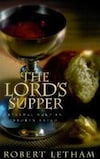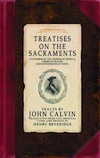 The June edition of Tabletalk is
out. This issue examines faith and repentance. The words “faith” and
“repentance” are misunderstood by many people, including a large number
of professing Christians. Skeptics caricature faith as the opposite of
reason. Richard Dawkins, for example, has defined faith as “belief in
spite of, even perhaps because of, the lack of evidence.” Repentance is
sometimes seen by Christians as optional. Because faith is central to
the message of the Bible, and because faith and repentance are demanded
of all who hear the message of Christ, it is necessary that we come to a
true understanding of the meaning of these words—not in order to
increase our vocabulary, but in order that we might trust and obey the
living God.
The June edition of Tabletalk is
out. This issue examines faith and repentance. The words “faith” and
“repentance” are misunderstood by many people, including a large number
of professing Christians. Skeptics caricature faith as the opposite of
reason. Richard Dawkins, for example, has defined faith as “belief in
spite of, even perhaps because of, the lack of evidence.” Repentance is
sometimes seen by Christians as optional. Because faith is central to
the message of the Bible, and because faith and repentance are demanded
of all who hear the message of Christ, it is necessary that we come to a
true understanding of the meaning of these words—not in order to
increase our vocabulary, but in order that we might trust and obey the
living God.
Contributors include R.C. Sproul along with Guy Richard, Sinclair Ferguson, Joel Beeke, Keith Mathison, R.C. Sproul Jr., Trip Lee, Douglas J. Moo, Cal Thomas and Abdul Saleeb.




 Robert Letham.
Robert Letham.  John Calvin.
John Calvin. 




